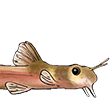growth rates l190
growth rates l190
hi,
can anyone give an estimate for the growth rates for L190.
kept at 27-28 c and plenty of food and wood.
I was of the opinion that they are quite slow growing however I have been told they grow quickly.
I have my two about 10 months and they have probably grown inch to an inch and a quater however they have really filled out in the body and head.
regards
joe mc
can anyone give an estimate for the growth rates for L190.
kept at 27-28 c and plenty of food and wood.
I was of the opinion that they are quite slow growing however I have been told they grow quickly.
I have my two about 10 months and they have probably grown inch to an inch and a quater however they have really filled out in the body and head.
regards
joe mc
- MatsP
- Posts: 21038
- Joined: 06 Oct 2004, 13:58
- My articles: 4
- My images: 28
- My cats species list: 117 (i:33, k:0)
- My aquaria list: 10 (i:8)
- My BLogs: 4 (i:0, p:97)
- Spotted: 187
- Location 1: North of Cambridge
- Location 2: England.
Re: growth rates l190
Growth rates are pretty hard to give a concrete answer for. If you'd ask me, I would have said a 4" fish would grow less than an inch in a year. But your has grown more than that. So you must be doing something right. How large is your fish? What are you feeding it?
--
Mats
--
Mats
- matthewfaulkner
- Posts: 371
- Joined: 07 Oct 2009, 19:28
- I've donated: $61.00!
- My images: 42
- My cats species list: 14 (i:0, k:0)
- My aquaria list: 2 (i:0)
- Spotted: 26
- Location 1: Wales
- Location 2: UK
- Interests: Panaque
- Contact:
Re: growth rates l190
Royals are typically slow growing in most aquaria. My oldest L190 has grown about 0.5" year. Occasionally I read that some people's royals have grown exceptionally fast and when I ask them about it, they always seem to have a very meaty based diet, but this has been shown to lead to premature death. Like Mats said, there is no definitive answer, apart from slow on average but some individuals seem to vary wildly.
Matthew
Re: growth rates l190
my two fish are now just over four and a half inches, (TIP TO TIP INC. TAIL)
i feed them cucumber, lettuce spinach, cale, dandalion leaves and the odd pleco wafer, also ocasionaly feed them frozen mysis shrimp and brineshrimp and garlic. I don't feed the pleco wafers too often as they tend to scavange some of the prepared foods that I feed the other fish in the tank
the tank is planted but they show absolutly no interest in eating any of the plants growing in there.
but I would say that 75 % of their intake is wood! you can actually hear them rasping away at the wood, first time I heard it I thought I had a mouse in the room!
the wood in the tank is mostly oak, hawthorn and alder roots.
i feed them cucumber, lettuce spinach, cale, dandalion leaves and the odd pleco wafer, also ocasionaly feed them frozen mysis shrimp and brineshrimp and garlic. I don't feed the pleco wafers too often as they tend to scavange some of the prepared foods that I feed the other fish in the tank
the tank is planted but they show absolutly no interest in eating any of the plants growing in there.
but I would say that 75 % of their intake is wood! you can actually hear them rasping away at the wood, first time I heard it I thought I had a mouse in the room!
the wood in the tank is mostly oak, hawthorn and alder roots.
-
Ullopincrate
- Posts: 2
- Joined: 12 Feb 2010, 21:20
- My cats species list: 8 (i:0, k:0)
- My aquaria list: 4 (i:0)
- Location 2: US
Re: growth rates l190
I have housed a few of these over the years, I have a small one now. I think the food they consume other than wood when the lights go out (and there is left over food) is a variable. I noticed that when I moved one from a 90g to a 180g that it grew an inch in 6 months or so. This was years ago. Ironically the small one I referenced above was in my 100 discus tank. (very messy in there). I came across another 180 tank a couple of months back for an outstanding deal and purchased it. I recently moved the little guy to my new 180g. This will be an opportunity to see if the phenomenon will be repeated. Generally they grow staggeringly slow. 
- 2wheelsx2
- Posts: 1018
- Joined: 16 Jan 2006, 06:55
- I've donated: $20.00!
- My cats species list: 71 (i:3, k:0)
- My aquaria list: 4 (i:3)
- Location 1: Burnaby, BC, Canada
- Location 2: BC, Canada
- Interests: motorcycles, tropical fish, car detailing
Re: growth rates l190
I just got a 5" L190 about 2 weeks ago, and it eats yams like they're going out of style when I feed it. I'm going to be watching closely to see how fast it grows, as I've been told that it will grow an inch a year max.
Re: growth rates l190
I must try yams, I also feed mine apple ,but it sits there for about two days untouched then out they come and devour it over night every time!
I just saw one of the shops near here has L190 7.5_8" at €40 !! what a price and nice full bodied fish too, I guess they must be at least 5 years old.
I just saw one of the shops near here has L190 7.5_8" at €40 !! what a price and nice full bodied fish too, I guess they must be at least 5 years old.
- 2wheelsx2
- Posts: 1018
- Joined: 16 Jan 2006, 06:55
- I've donated: $20.00!
- My cats species list: 71 (i:3, k:0)
- My aquaria list: 4 (i:3)
- Location 1: Burnaby, BC, Canada
- Location 2: BC, Canada
- Interests: motorcycles, tropical fish, car detailing
Re: growth rates l190
Hopefully you won't mind the orange poop afterwards, as there will be lots of it. 
-
hotplecogirl
- Posts: 97
- Joined: 28 Nov 2009, 02:27
- Location 2: Boston,USA
Re: growth rates l190
Mine are growing an inch a year maybe a bit more.They are also in a 450 gallon tank.I am glad they grow slow unlike my adontis pleco.
Re: growth rates l190
woud people then generally agree that about an inch a year is average for the L190 .
does anyone keep the other wood eating cats Hypostomus cochilodon?
are there other species that eat wood?
does anyone keep the other wood eating cats Hypostomus cochilodon?
are there other species that eat wood?
- 2wheelsx2
- Posts: 1018
- Joined: 16 Jan 2006, 06:55
- I've donated: $20.00!
- My cats species list: 71 (i:3, k:0)
- My aquaria list: 4 (i:3)
- Location 1: Burnaby, BC, Canada
- Location 2: BC, Canada
- Interests: motorcycles, tropical fish, car detailing
Re: growth rates l190
Don't all the panaques eat wood?
- MatsP
- Posts: 21038
- Joined: 06 Oct 2004, 13:58
- My articles: 4
- My images: 28
- My cats species list: 117 (i:33, k:0)
- My aquaria list: 10 (i:8)
- My BLogs: 4 (i:0, p:97)
- Spotted: 187
- Location 1: North of Cambridge
- Location 2: England.
Re: growth rates l190
They certainly do. Why else would the have chisels for teeth.2wheelsx2 wrote:Don't all the panaques eat wood?
By the way, wearing down their teeth is an unlikely scenario, as they have a constant supply of new teeth - not quite like a rabbit where the teeth continuously grow, but there is a "factory" of teeth at the back end of the mouth, and they get pushed forward. Look in the Science News forum and find Nathan Lujan's dissertation for more info on this.
--
Mats
- 2wheelsx2
- Posts: 1018
- Joined: 16 Jan 2006, 06:55
- I've donated: $20.00!
- My cats species list: 71 (i:3, k:0)
- My aquaria list: 4 (i:3)
- Location 1: Burnaby, BC, Canada
- Location 2: BC, Canada
- Interests: motorcycles, tropical fish, car detailing
Re: growth rates l190
Their teeth are like shark teeth?
- MatsP
- Posts: 21038
- Joined: 06 Oct 2004, 13:58
- My articles: 4
- My images: 28
- My cats species list: 117 (i:33, k:0)
- My aquaria list: 10 (i:8)
- My BLogs: 4 (i:0, p:97)
- Spotted: 187
- Location 1: North of Cambridge
- Location 2: England.
Re: growth rates l190
Yes, as far as my understanding of shark-teeth is concerned... New teeth are generated from the back, and front teeth are "discarded"....2wheelsx2 wrote:Their teeth are like shark teeth?
--
Mats
-
Bas Pels
- Posts: 2913
- Joined: 21 Dec 2006, 20:35
- My images: 1
- My cats species list: 28 (i:0, k:0)
- Spotted: 8
- Location 1: the Netherlands
- Location 2: Nijmegen the Netherlands
- Interests: Central American and Uruguayan fishes
Re: growth rates l190
Shark teeth are similar to their scales - but the scatel have a little spine, and the teeth have a big spine, the teeth. This might explain how the are able to produce their amounts of teeth: if they loose a few (they are NOT anchored in the jaw) the skin moves a bit, and a newset of teeth is in place
No other fish have a similar system
No other fish have a similar system
cats have whiskers
-
firenzenz
- Posts: 48
- Joined: 14 Feb 2007, 09:58
- My cats species list: 15 (i:0, k:0)
- Spotted: 1
- Location 1: NZ
Re: growth rates l190
I would say an inch or a little less a year depending on conditions would be a good benchmark.
This Girl(?) has grown 10cm in 4 yrs.
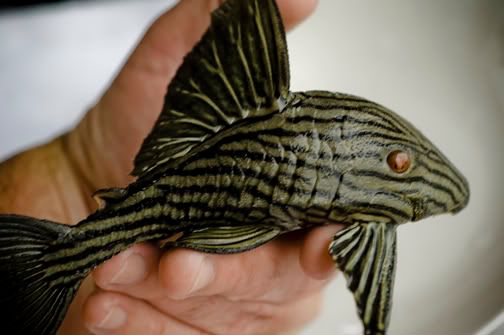
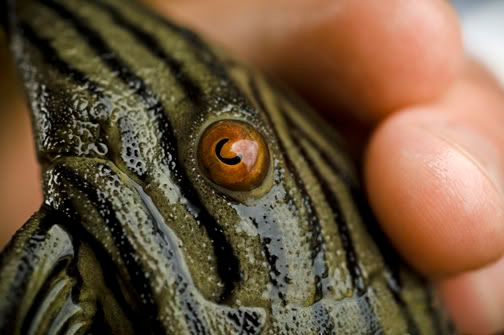
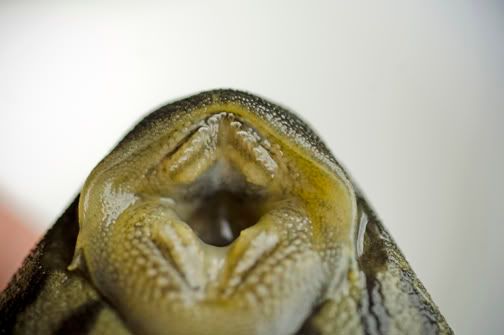
I keep cochliodon with it, although it seems to graze on the algae a lot more than the Royal.
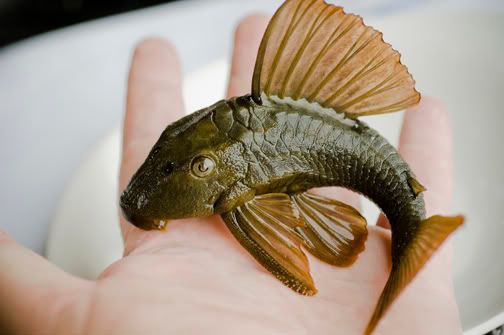
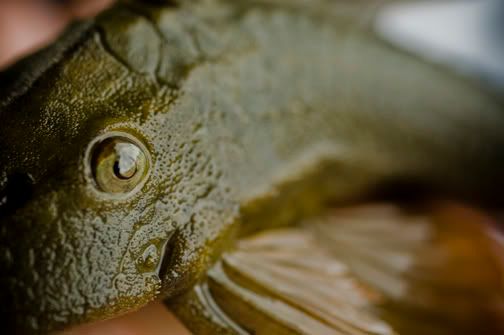
Also have this guy
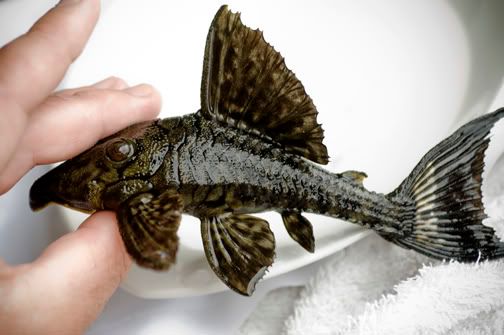
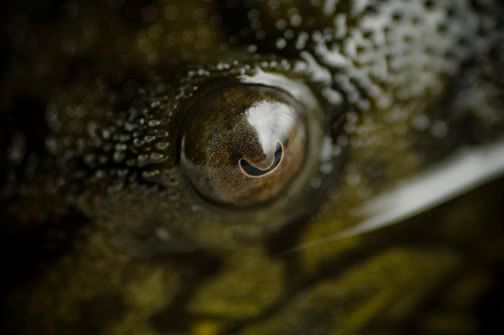

This Girl(?) has grown 10cm in 4 yrs.



I keep cochliodon with it, although it seems to graze on the algae a lot more than the Royal.


Also have this guy



-
Lloydy
- Posts: 217
- Joined: 12 Aug 2008, 00:35
- My cats species list: 6 (i:0, k:0)
- My aquaria list: 2 (i:0)
- Location 1: Chandlers Ford (near Southampton, England)
- Location 2: Southampton (England)
Re: growth rates l190
Lovely photos 
Q) Why are dead fish harder to 'wind up' than live fish?
A) Because dead fish never take the bait! ;)
A) Because dead fish never take the bait! ;)
Re: growth rates l190
wow! stunning photos of beautiful fish.
- Suckermouth
- Posts: 1609
- Joined: 28 Nov 2003, 14:29
- My images: 17
- My cats species list: 22 (i:0, k:0)
- My aquaria list: 2 (i:0)
- My BLogs: 6 (i:0, p:237)
- Spotted: 14
- Location 1: USA
- Location 2: Washington, DC
Re: growth rates l190
Loricariid teeth are similar to their odontodes (although I don't know if the teeth or scales are homologous to scales), which is how odontodes get their name. Their teeth are also not anchored to the bone of the jaw.
Don't know if everyone has access to this paper:
Morphology and Development of Teeth and Epidermal Brushes in Loricariid Catfishes. Tom Geerinckx, Joris De Poorter, and Dominique Adriaens.
http://www.evomorph.ugent.be/Publications/Publ57.pdf
Don't know if everyone has access to this paper:
Morphology and Development of Teeth and Epidermal Brushes in Loricariid Catfishes. Tom Geerinckx, Joris De Poorter, and Dominique Adriaens.
http://www.evomorph.ugent.be/Publications/Publ57.pdf
- Milton Tan
Research Scientist @ Illinois Natural History Survey
Research Scientist @ Illinois Natural History Survey

